Baobab
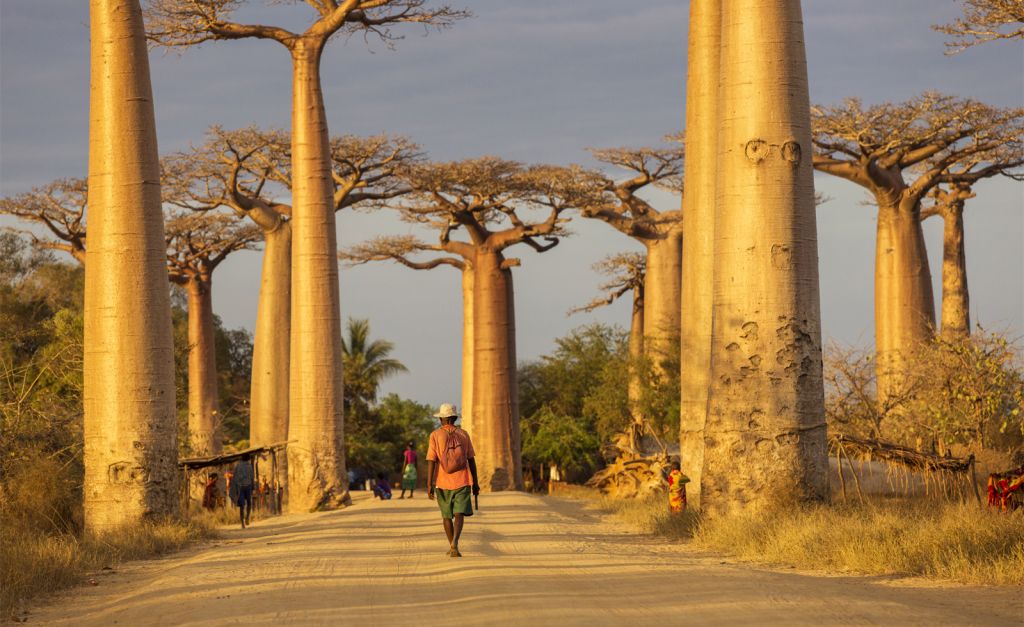
Alexis is the founder and CEO of Kakia Oils, a…
The Bead-Like Seeds, The Bleak Side & The Bountiful Benefits
In the 80s, as a little girl living and growing up in the Eastern side of the city of Nairobi, Kenya, l interacted on countless occasions with mabuyu candy (raw baobab seeds coated in some coastal syrup – water, sugar, salt, chili powder, food colouring, ground cardamom) from the Ubuyu tree (baobab tree). The mabuyu candy was super-addictive that to date, in my adulthood, l have a spot in the city that l still visit for my monthly stash of mabuyu candy; an addiction l have unintentionally but successfully passed on to my offspring….old habits die hard, l guess!
Fast forward, many years into adulthood, l commercialize my love for plant-based oils, intensify my research on different oils and boom! Mabuyu not only has an oil… who knew?!… but as far as nutrition goes, baobab fruit apparently packs a big punch when it comes to essential nutrients: Vitamin C (7-10 times more than oranges), dietary fiber (30 times more than lettuce) that research has shown to be prebiotic in nature , magnesium (5 times more than avocados), potassium (6 times more than bananas) and calcium (2 times more than cow’s milk). It is also rich in antioxidants — more than blueberries, goji berries, pomegranate, and acai. Of course, I am floored by this new mind-blowing information on my favourite snack and l want to know more about the Ubuyu tree and its oil!
Well, it turns out that the scientific name for the baobab tree is Adansoniadigitata . The baobab tree is a native African tree which grows in the southern countries of Africa, such as Kenya, Malawi and Madagascar. It has an extremely thick, often bulging, trunk and the tree may grow to 80 feet (24 meters) tall with a trunk from 30 to 50 feet (9 to 15 meters) in diameter. The tree has white flowers that open at night and are pollinated by bats. The fruit, is almost 1 foot (30 centimeters) long. It dangles from the tree like a lantern from a long, ropy stem. The fruit holds many seeds buried in a mealy pulp. The pulp, which is rich in vitamin C, serves as food for both animals and people, and it is also used to flavor cool drinks.
People sometimes use the leaves and bark in medicines. They make paper, cloth, and rope from the bark fibers. The giant trees also create their own ecosystem. For example, it provides food, water, and shelter for animals and insects of all sizes and provides shade in the hot climates where they grow, serving as cool gathering places for animals and humans. Baobab trees also help keep soil conditions humid and prevent soil erosion.
It is a majestic tree that has an estimated lifespan of about 3,000 years with the oldest baobab recorded being the Panke baobab, which lived for more than 2,500 years. The baobab fruit (also known as monkey fruit or monkey bread — no wonder Rafiki in the Lion King movie lived in a baobab tree!) is the only fruit in the world that naturally dries on the branch — a process takes about 6 months.
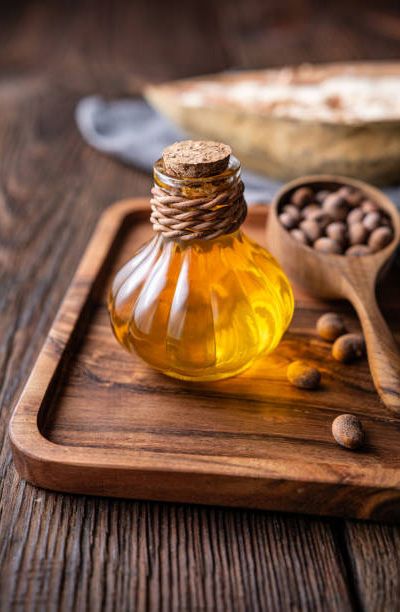
You could still be asking yourself why you’d need to apply baobab oil or any other oil on your face/skin given your skin type, right? Hear me out, sometimes oil can actually set you on the path towards a gorgeous complexion. Crazy as it sounds, plant-based oils can work wonders on any number of skin care woes, and transform skin from dull to dazzling.
You see, if you think of the skin as a brick wall, the skin cells are the bricks and the oils and lipids are the mortar, which holds the bricks together in place and prevents anything from seeping through. Plant-based oils are considered a type of emollient, which means they help strengthen the outer layer of your skin — the stratum corneum — by softening and sealing it, preventing water loss. The oils are typically derived from the various parts of plants — flowers, leaves, roots, etc. And since they can include a range of potent ingredients, the potential benefits of these plant-based oils are endless.
Pressed from the seeds of the baobab tree, yellowish to gold in colour, the baobab seed oil is a luxurious, light-weight (non-greasy and non-comedogenic), silky smooth, nutrient-rich oil with a light nutty smell and many health benefits. The powerful benefits of baobab seed oil have been known by communities in Africa for centuries, but went undiscovered by the rest of the world until recently.
So, what makes baobab seed oil so special? See our 12 reasons below:
1. As a facial oil: A good rule of thumb when applying skin care products is to go from lightest to thickest. So apply your lightest products first, such as serums or oils, and move your way up to the thickest products, such as moisturizers and sunscreen.
2. Boosts antioxidants: Believe it or not, baobab boasts the highest super foods per serving (even surpassing goji berries and matcha). This, along with its ability to fight free radicals, makes it a perfect ingredient for aging skin.
3. Increases collagen: Collagen makes up a third of the protein in your body and is what gives skin its strength and elasticity. The older we get, the slower collagen production becomes, so it’s important to support your skin with a healthy diet and proper skin care. Baobab seed oil is rich in Vitamin C – known to boost collagen – and antioxidants that, when used on the skin, help to preserve collagen and keep skin strong, glowing, radiant, and youthful-looking.
4. Strengthens nails: Did you know that applying cuticle oil can stimulate nail growth? Strong nails start with healthy cuticles, so keep them moisturized with a good cuticle oil. Baobab seed oil, containing high
amounts of protein and calcium, absorbs quickly and isn’t too heavy, making it a great moisturizer for your fingertips and aids in healing and maintaining strong, healthy nails. Just dab a drop on each cuticle, massage it in, and enjoy your beautiful nails!
5. Facial oil cleansing: Like many natural oils (tea tree, jojoba, and chia seed—to name a few), baobab seed oil is not only nourishing but cleansing as well. Gently massage the oil into damp skin and rinse thoroughly with warm water for a healthy, natural glow.
6. Healing massage: If you need a healing massage, try using the baobab seed oil. It feels smooth on the skin and does not leave any residue, but keeps the skin moisturized. Get half a cup of jojoba oil, three tablespoons of baobab oil and 20 drops of lavender essential oil to add a relaxing scent. Store the mixture in an amber bottle and use when needed.
7. Skin nourishing: There are a lot of nutrients in the baobab seed oil, and they sink into the skin to nourish the cells in the skin layer. These nutrients include the vitamins A, C, D, E and K, and omega fatty acids 3, 6 and 9. They help the cells perform optimally and keep the skin healthy.
8. Eye serum: The baobab seed oil also does well in keeping the under-eye skin looking youthful. Try 3 tablespoons of baobab oil, 3 drops of lavender essential oil, and 2 tablespoons of jojoba oil. Shake the mixture well and gently massage a drop or two under each eye with your finger, daily.
9. Anti-inflammation: Because baobab seed oil is packed with vitamins B, C, and omega 3s, it can help with dry, aging, and dull skin. The oil form can help soothe mild eczema, psoriasis, rosacea and/or dandruff as well, because it is moisturizing, but it does not replace medications for the conditions. Use it on wet skin for the best results.
10. Chapped lips: A small amount of baobab seed oil will restore your lips to a supple state in a short while.
11. Balance skin oil production: People with low levels of linoleic acid in their skin produce more oil on their skin surface. However, the omega 6 acid (linoleic acid) constituent of baobab seed oil meets this need and balances the production of oil in the skin. You need a mixture of 2 tablespoons of baobab oil and same for hemp seed oil and store in a 60ml — amber dropper bottle. A couple of drops daily on your face is advised.
12. Hair care: Other than just being a fun word to say out loud, baobab seed oil is intensely hydrating, which makes it an excellent choice for hair care. As the natural oil hydrates, it also protects from heat and environmental aggressors like pollution, sun, wind, and extreme temperature, a practice perfected by African women who ground the seeds into butter and used it on their hair for hundreds of years.
Side Effects:
*It is important to note that the baobab seed oil is not ingestible. It is for external use only. It is incredibly gentle, and therefore has no known side effects. But if you’re just incorporating it into your routine, it’s best to start slowly, as with any new product. It is always recommended that one tests a small amount of the oil on the forearm twice a day for seven days before using it more widely.
In conclusion, the baobab, one of the world’s most unusual and iconic trees which has nine species, is in danger. The gigantic baobab, known as the “tree of life,” can live as long as 3,000 years. But the hardy trees are suddenly dying in unusual numbers, many long before their expected life spans. Climate change has increased the occurrence of such weather anomalies as droughts, floods, and lightning storms, all of which can harm or kill baobab trees. A destructive mold called black fungus is also appearing more frequently on baobab trees. The tree is further threatened by the loss of its natural habitat to agriculture and development. Habitat loss and illegal hunting have also greatly reduced the population of African elephants, the animals largely responsible for spreading the tree’s seeds.
African elephants, who are themselves in danger, help propagate baobabs by eating the tree’s fruit and seeds (antelopes, baboons, and other animals also contribute). The seeds pass through the animals’ digestive systems, and they are then dropped in ready-made fertilizer. Elephants tend to walk great distances in search of food and water, and a single tree’s seeds can thus be spread out over many miles. Ironically, elephants are also known to damage or kill baobab trees in times of severe drought. Elephants sometimes rip apart a baobab’s trunk to get at the tree’s bountiful water supply inside.
If no action is taken to protect the baobab and its environment, certain species of the tree could be extinct within 100 years.
Lastly, the baobab tree is considered to be a Lost Crop™— an undervalued wild plant with powerful health benefits. By including baobab seed oil in your skincare ritual, you’re helping bring value to the tree and protect biodiversity. Baobab seed oil is a one-ingredient powerhouse, so you can rest assured that you’re not putting any unnecessary chemicals, fillers, or mystery ingredients on your skin.
A life-inducing gift from the Kenyan soil and truly stoic in every aspect of the word!
What's Your Reaction?
Alexis is the founder and CEO of Kakia Oils, a community-interest agribusiness that celebrates the versatility, potency of plant-based oils from the best of African produce to promote wellness for all. The easy-going, adventurous mother of two struggled with eczema into her young adulthood, which she successfully controlled using botanical oils. When she quit formal employment, she pursued her passion for plant-based oils entrepreneurially. She is Christian, a student of nature and a seasoned Social Development Specialist.








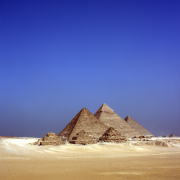

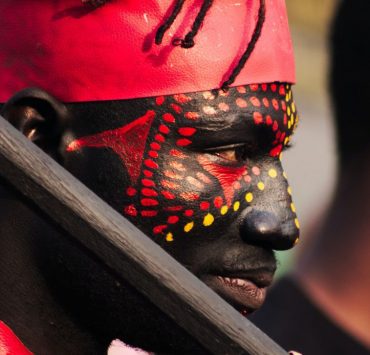





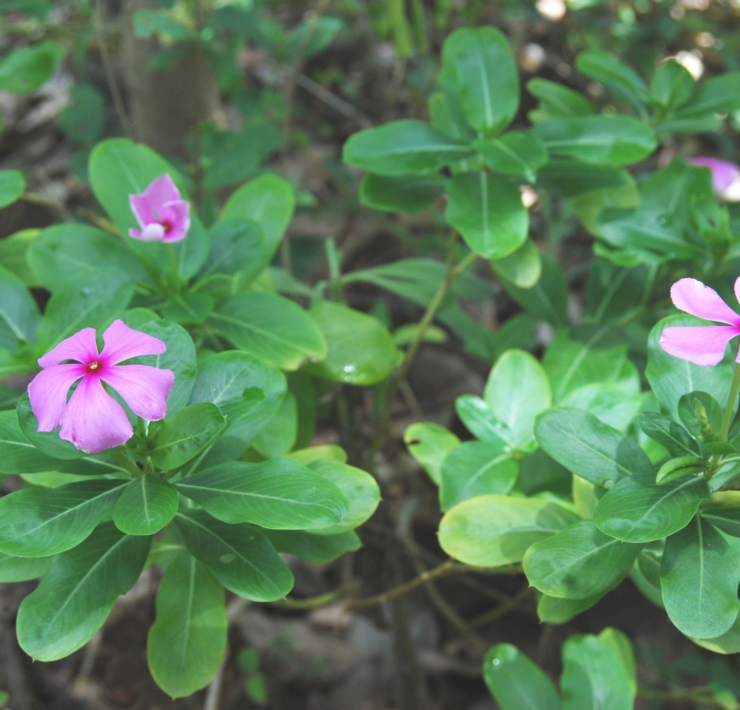


I am an essential oils person so I found this article by Ms. Juma. I would like to know how to go about purchasing products from Kakia Oils…
Hello our dear brother. We will connect you to Ms Juma and you can discuss the details. Please check our chat on phone shortly.